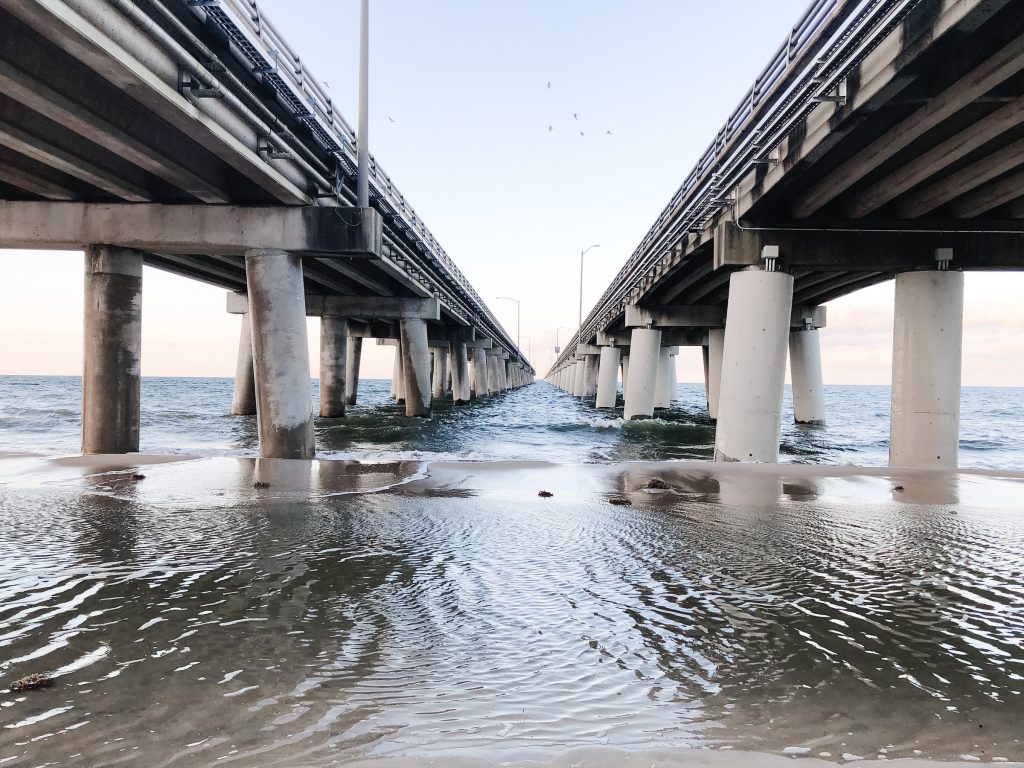
On August 10th, the Senate passed the Bipartisan Investment and Jobs Act – a comprehensive infrastructure package that will help us maintain our roads, bridges, rail systems, and other critical infrastructure. Senator Tim Kaine (D-VA) broke down the bill in a statement posted on his website.
In brief, the Bipartisan Investment and Jobs Act:
Roads, Bridges, & Major Projects
- Provides at least $7 billion for Virginia roads and highways
- This includes 2,124 miles of highway in poor condition across the Commonwealth
- And $537 million for Virginia bridge replacement and repairs over five years.
- Including 577 bridges in poor condition across the Commonwealth
Public Transit & WMATA
- Includes an estimated $1.2 billion over five years to improve public transportation in Virginia,
- Plus $39 billion over five years for public transit systems across the nation,
- And reauthorizes federal funding for the Washington Metropolitan Area Transit Authority (WMATA) through fiscal year 2030 at current annual levels.
Rail
- Provides $66 billion in passenger rail to upgrade speed, accessibility, efficiency, and resilience, including:
- $22 billion in grants to Amtrak
- $24 billion as federal-state partnership grants for Northeast Corridor modernization
- $12 billion for partnership grants for intercity rail service including high-speed rail
- $5 billion for rail improvements and safety grants
- And $3 billion for grade crossing safety improvements.
This money will help Virginia fund current projects announced with CSX, Norfolk Southern, Amtrak, and VRE.
Airports, Ports, & Waterways
- Allocates $25 billion to improve the nation’s airports including runways, gates, terminals, and concessions
- And $17 billion for port infrastructure to fund waterway and coastal infrastructure, inland waterway improvements, and land ports of entry.
Army Corps of Engineers
- Provides $9.55 billion for Army Corps of Engineers infrastructure priorities like harbor dredging, coastal resiliency, and repairing damages to Corps Projects caused by natural disasters.
Broadband
- Includes $65 billion for broadband deployment.
- Virginia will receive a minimum allocation of $100 million to expand broadband across the Commonwealth, including providing access to at least 473,000 Virginians who currently lack it
- And 1,908,000 (23%) of people in Virginia will be eligible for the Affordability Connectivity Benefit which will help low-income families afford internet access.
Resilience
- Allocates $47 billion for climate resilience measures that will help our communities weather increasingly severe storms, droughts, floods, fires, heat waves, and sea level rise, including funding for FEMA flood mitigation grants, making infrastructure investments to increase coastal resilience, and improving mapping and data so that household and businesses can better protect themselves from future flood events
- And $238 million for the Chesapeake Bay Program for ecosystem resiliency and restoration.
Electric Vehicle Charging
- Provides $7.5 billion to build electric vehicle (EV) charging stations across the country along highway corridors and within communities
- Virginia will receive an estimated $106 million over five years to support the expansion of an EV charging network in the Commonwealth
- And will have the opportunity to apply for the $2.5 billion in grant funding allocated to EV charging in the bill.
- And $2.5 billion for electric, zero-emission school buses.
Support for Minority Businesses
- And includes the Reaching America’s Rural Minority Businesses Act that partners with Historically Black Colleges and Universities (HBCUs) and other Minority Serving Institutions (MSIs) to establish business centers to support minority-owned small businesses in rural areas and to provide education, training, and technical assistance to help them grow and thrive.
The Bipartisan Investment and Jobs Act may not be signed into law yet but it is a step in the right direction to build resilience across the Commonwealth of Virginia and across our nation. Our 2021 Resilient Virginia Conference addresses resilience planning at the local, state, and federal levels. Join us to take on the resiliency challenge!




